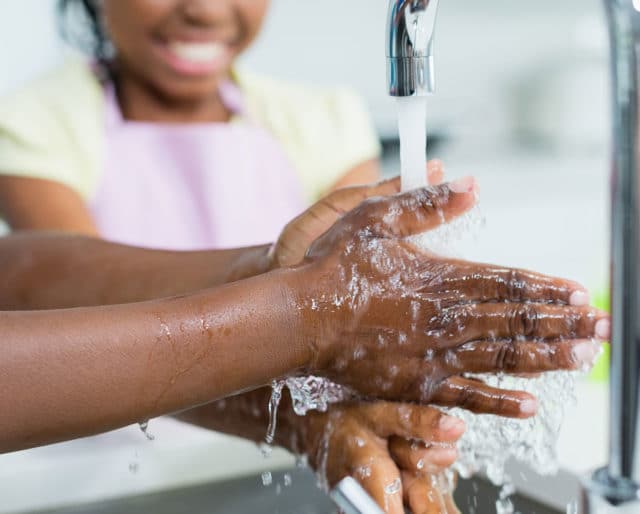
By Susan Varbedian Lucken, R.N., B.S.N.
Heart-to-Heart is a monthly offering of the Parish Health Ministry designed to help you care for your mind, body and spirit. This year, we are delighted to invite parishioners in the healthcare industry to share their knowledge with us. We hope you enjoy the new format!
Handwashing is an easy, inexpensive and effective way to prevent the spread of germs and keep people healthy. Studies have shown that handwashing can prevent 1 in 3 diarrhea-related sicknesses and 1 in 5 respiratory infections such as a cold or the flu.
Handwashing also helps fight antibiotic resistance. Avoiding infections in the first place reduces the amount of antibiotics that have to be used and reduces the likelihood that resistance will develop during treatment.
When should you wash your hands?
Washing hands with soap and water is the best way to reduce the number of germs on them in most situations. If soap and water are not available, use an alcohol-based sanitizer that contains at least 60% alcohol. Alcohol-based hand sanitizers can quickly reduce the number of germs on hands in some situations, but sanitizers do NOT eliminate all types of germs and might not remove harmful chemicals.
Handwashing with soap removes germs from hands. This helps prevent infections because:
People frequently touch their eyes, nose and mouth without even realizing it. Germs can get into the body via these 3 routes and make us sick.
According to the CDC, hand washing education in the community :
It goes without saying that encouraging children to wash their hands can help them to stay healthy. Wash your hands with your child to show him or her how it’s done. To prevent rushing, suggest washing hands for as long as it takes to sing the “Happy Birthday” song TWICE.
We can all do our part in preventing illnesses by just remembering to wash our hands frequently throughout the day.
Susan received her BSN from Michigan State University and practiced at William Beaumont Hospital for 30 years. She recently received the Distinguished Alumni Award from Michigan State’s College of Nursing.